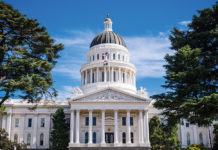Lately, a lot of secrets have been revealed and big questions
about individual privacy, national security and the public’s right
to know are once again being debated.
These secrets are being told across the Internet and elsewhere.
Individual privacy is being compromised at check-in aisles in our
airports. And, locally, journalists have had to go to court once
more to force local governments to open their files and quit hiding
from us.
There are so many secrets being told it reminds us of an old
quote: “I know I can keep a secret; it’s the person I tell it to
that can’t keep one.”
But it’s one thing for individuals to want to keep secrets and
it is quite another when governments try to do it.
“Secrecy and a free, democratic government don’t mix,” said U.S.
President Harry Truman. “Behind closed doors is where democracy
goes to die,” is another old saying that is very popular with us
journalists.
It’s not easy keeping a secret anymore, unless you are an
omnipotent or undemocratic force. And, now the Wikileaks release of
250,000 U.S. Government security memos is proving even Uncle Sam
has a secrets problem.
And so, word wars have ignited over the U.S. Constitution’s
First and Fourth Amendments that guarantee free speech and free
press and the “right of the people to be secure in their persons,
houses, papers, and effects, against unreasonable searches.”
Should our government keep secrets in the name of diplomatic
immunity? Should we sacrifice our privacy and protection from
unreasonable searches in the name of national security? Do we care
whether local governments like school boards or public employee
pension plans keep secrets or not?
While we debate a government’s right to keep secrets, the same
government is collecting all our secrets from our on-line
communications, credit transactions and our buying habits. Credit
card companies, Google, spammers and the telephone companies
themselves are all collecting our secrets. They know our favorite
websites, political preferences and our physical whereabouts.
But when we, as taxpayers, want to know what our government’s
been up to it’s another question.
Let’s bring this “secret” question closer to home for a
moment.
The County of Sonoma last summer sold $290 million in bonds to
raise money to cover future expenses to pay 8,000 retired county
employees. The county and the Sonoma County Employees Retirement
Association wants to keep the roster of retirees and how much
taxpayers owe them a secret. The Association claims it needs to
protect the privacy of its members.
Judge Mark Tansil ruled the public has a right to monitor the
expenditures of taxpayer money, outweighing personal privacy. His
judgement answered a lawsuit brought by the Santa Rosa Press
Democrat under a public records act. The case is being appealed
with a final ruling due in two weeks.
All local government and school boards are currently plagued by
escalating and unfunded retirement pension funds. It’s no secret
that something has to be done to fix this public treasury problem.
So why is it a secret how much we really owe?
Airport security affects some of us who need to travel. National
security questions about leaked diplomatic memos is mostly an
academic exercise, but questions of transparency by our governments
affects all of us.
There have been many high principles cited by the New York Times
in defense of releasing the Wikileak memos. Homeland Security
officials have repeatedly reminded everyone we must sacrifice some
of our privacy to keep looking for terrorists.
Too many secrets lead to this kind of confusion. Maybe we don’t
have much say about airport security or diplomatic rumors about
Iran, North Korea or wherever. But how about starting at home and
telling government to put their business on the record and to stay
out of ours.
— Rollie Atkinson
50.7
F
Healdsburg
April 18, 2025







